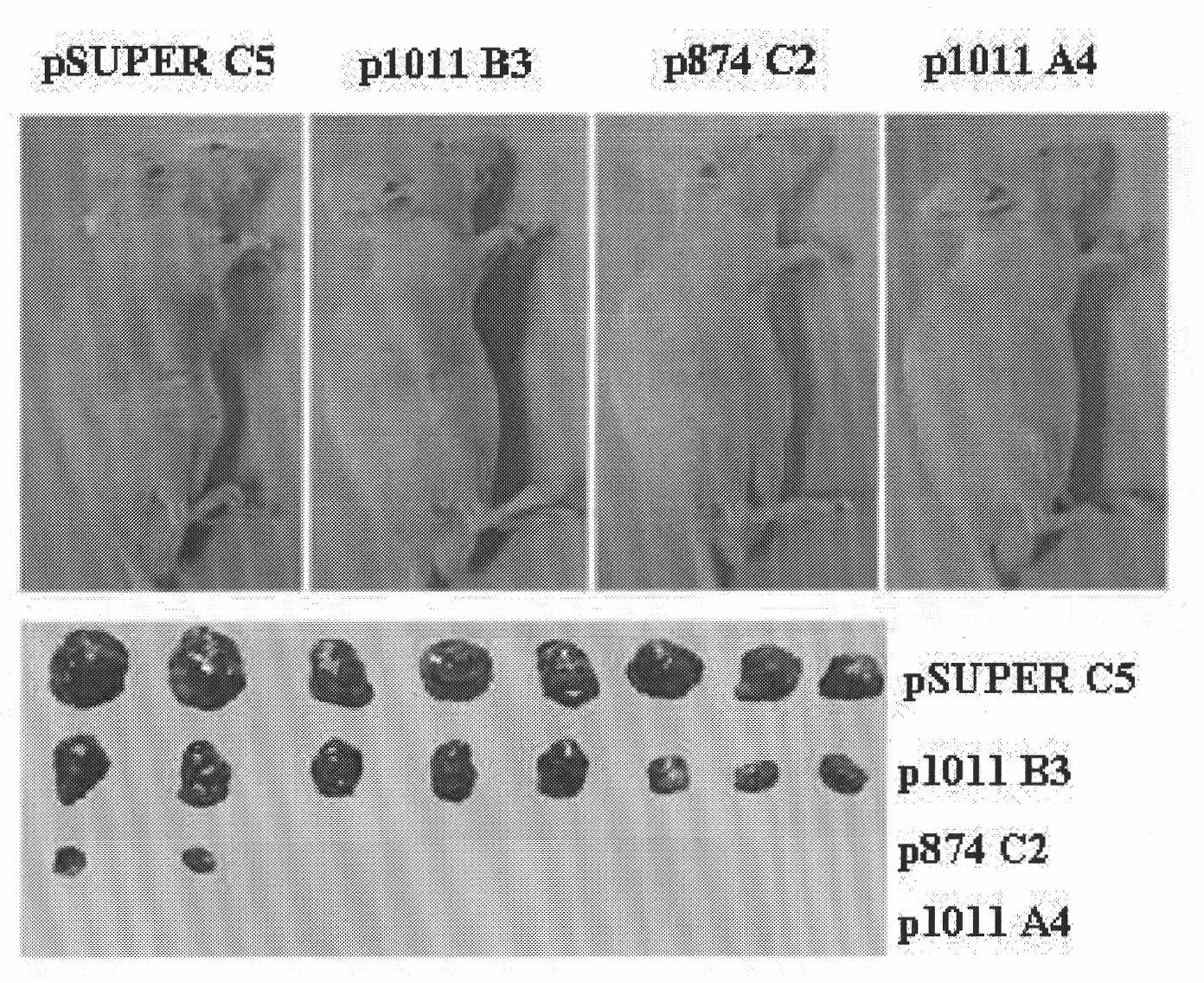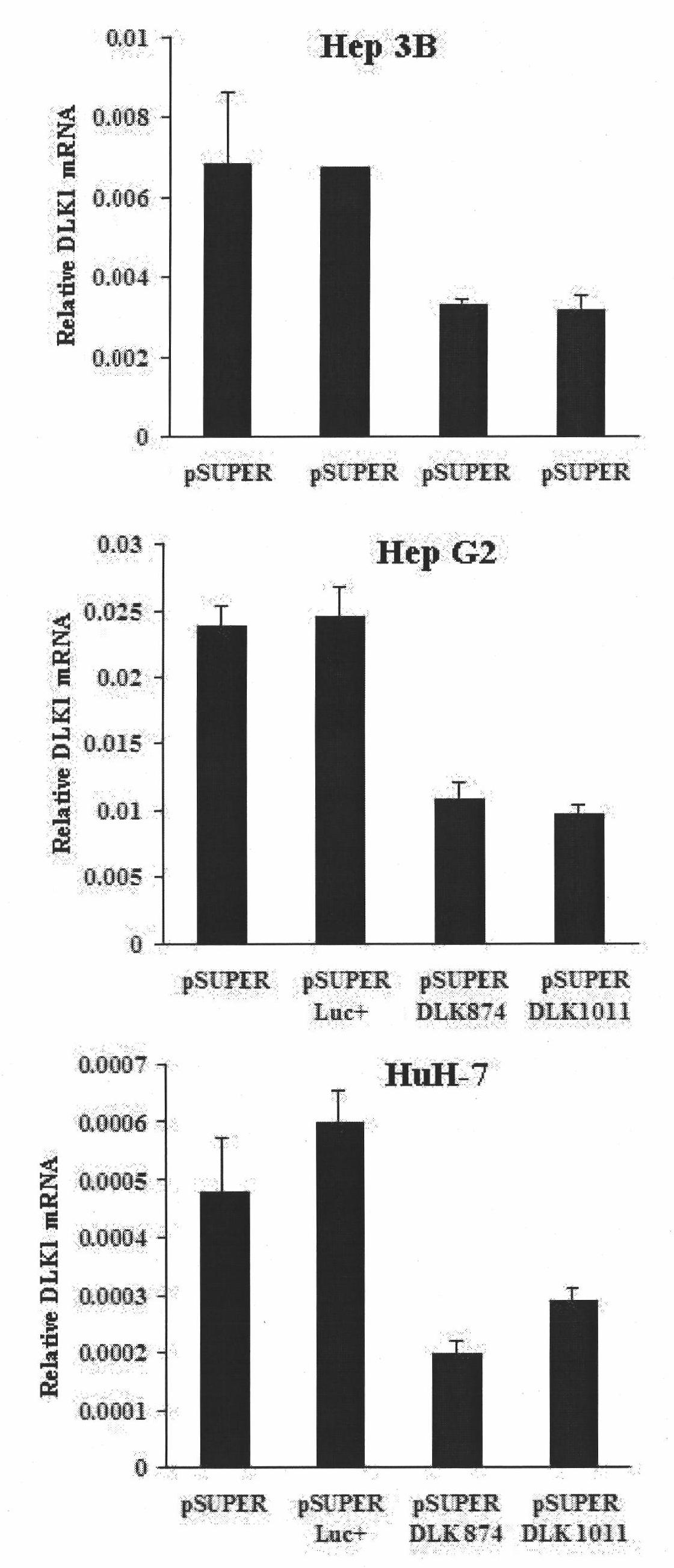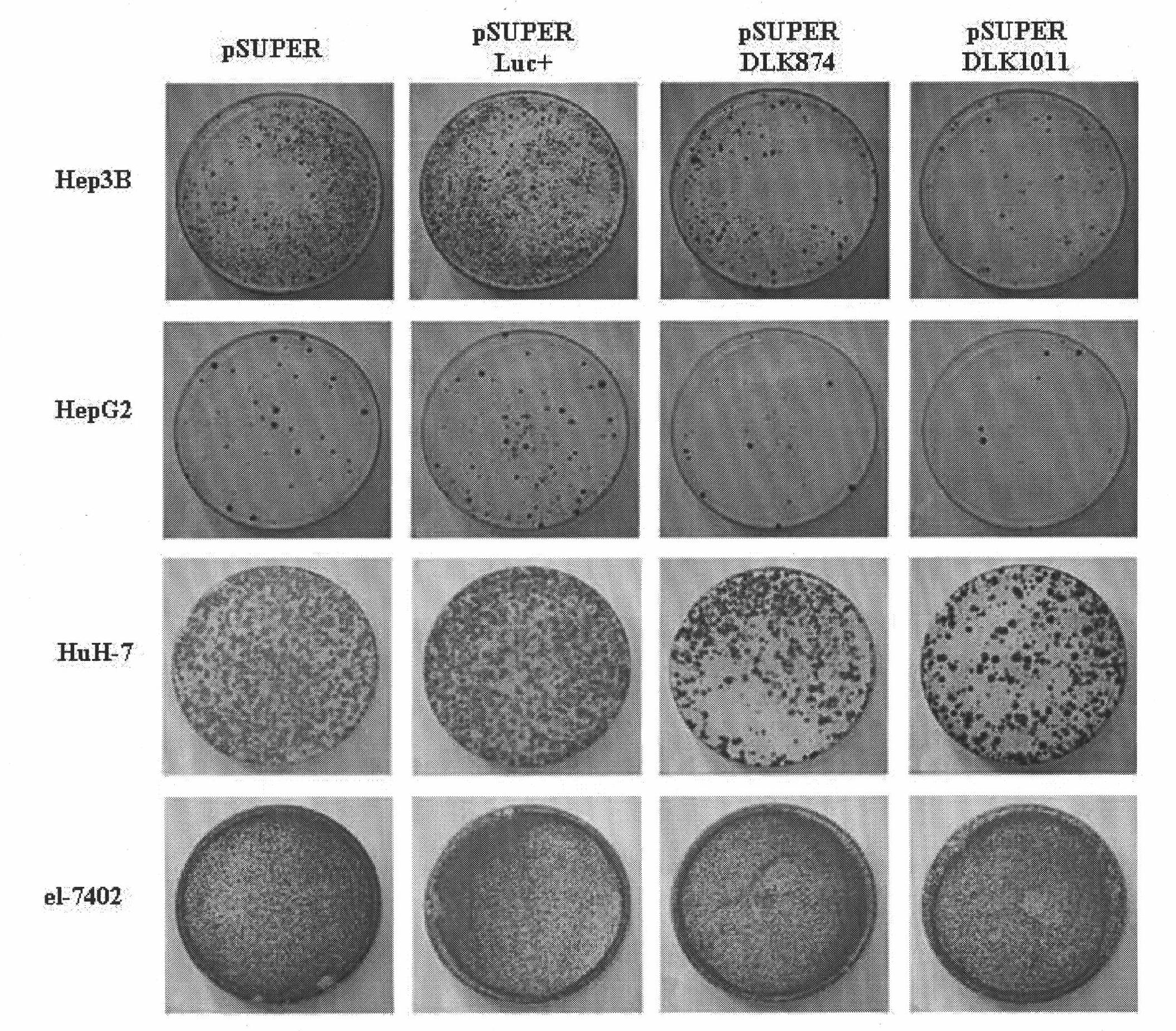Ribonucleic acid taking liver cancer related gene DLK1 as target spot and application thereof
A ribonucleic acid and gene technology, applied in the fields of molecular biology and genetic engineering, can solve the problems of little knowledge and poor prognosis of liver cancer
- Summary
- Abstract
- Description
- Claims
- Application Information
AI Technical Summary
Problems solved by technology
Method used
Image
Examples
Embodiment 1
[0023] Embodiment 1 constructs and identifies the RNAi plasmid of DLK1
[0024] In this example, the pSUPER plasmid was introduced to construct an RNAi plasmid capable of relatively stable transfection of cells. The plasmid contains the H1-RNA polymerase III gene promoter, the cDNA sequence oligonucleotide that can transcribe the short-chain hairpin structure RNA (shRNA) is inserted into the promoter of the pSUPER plasmid, and the vector is transfected into the cell Afterwards, shRNA with a hairpin-like structure can be stably synthesized in the cell, that is, a relatively stable effect of silencing the target gene can be achieved.
[0025] The oligonucleotide sequences used in this example are as follows:
[0026] 1. pSUPER Luc+:
[0027] Forward primer: gatccccctt acgctgagta cttcgattca agagatcgaagtactcagcg taagtttttg gaaa
[0028] Reverse primer: agcttttcca aaaacttacg ctgagtactt cgatctcttgaatcgaagta ctcagcgtaa gggg
[0029] 2. pSUPER DLK874:
[0030] Forward primer: gat...
Embodiment 2
[0045] Example 2 Instantaneous clone formation test (proving that the clone formation ability of HCC cells is reduced after the expression of DLK1 is inhibited)
[0046] On the basis of identifying that the RNAi mediated by the pSUPER vector is effective, the three kinds of endogenously expressing DLK1 cells in Example 1 were subjected to a transient clone formation test (see Fig. 2, Fig. 3 ), and no endogenous DLK1 expression HCC cell line Bel-7402 cells were used as control cells.
[0047] The pSUPER empty plasmid, pSUPER DLK874, pSUPER DLK1011 plasmid and pcDNA3.0 plasmid were co-transfected into Hep3B, HepG2, Huh-7 and Bel-7402 cells at a ratio of 10 to 1, where the pcDNA3.0 plasmid was transfected The latter cells provide G418 resistance. After transfection, an equal amount of cells from each control group were divided into 100mm cell culture dishes for culture, and were screened with MEM or DMEM complete culture medium containing appropriate concentration of G418 and wa...
Embodiment 3
[0049] Example 3 Western Blotting analysis (proving that the growth and proliferation ability of Huh-7 cells is reduced after the expression of DLK1 is inhibited)
[0050] Taking Huh-7 cells as the object, pSUPER empty plasmid, pSUPER DLK874, pSUPERDLK1011 plasmid and pcDNA3.0 plasmid were co-transfected into Huh-7 cells at a ratio of 10 to 1, respectively, to construct Huh-7 stable cells that inhibited the expression of DLK1 strains, and Western Blotting Analysis was used to identify the expression of DLK1 at the protein level in four of the stable cell strains (see Figure 4).
[0051] In Figure 4, pSUPER C5 is a pSUPER empty plasmid stable cell line; p1011B3 and p1011A4 are subclones formed after stably transfected with pSUPER DLK1011; p874C2 is a subclone formed after stably transfected with pSUPER DLK874. Two cell lines Huh-7p874C2 and Huh-7p1011A4 with stable down-regulation of DLK1 were obtained, while the expression of DLK1 in the stable strain Huh-7p1011B3 was not down...
PUM
 Login to View More
Login to View More Abstract
Description
Claims
Application Information
 Login to View More
Login to View More - R&D
- Intellectual Property
- Life Sciences
- Materials
- Tech Scout
- Unparalleled Data Quality
- Higher Quality Content
- 60% Fewer Hallucinations
Browse by: Latest US Patents, China's latest patents, Technical Efficacy Thesaurus, Application Domain, Technology Topic, Popular Technical Reports.
© 2025 PatSnap. All rights reserved.Legal|Privacy policy|Modern Slavery Act Transparency Statement|Sitemap|About US| Contact US: help@patsnap.com



